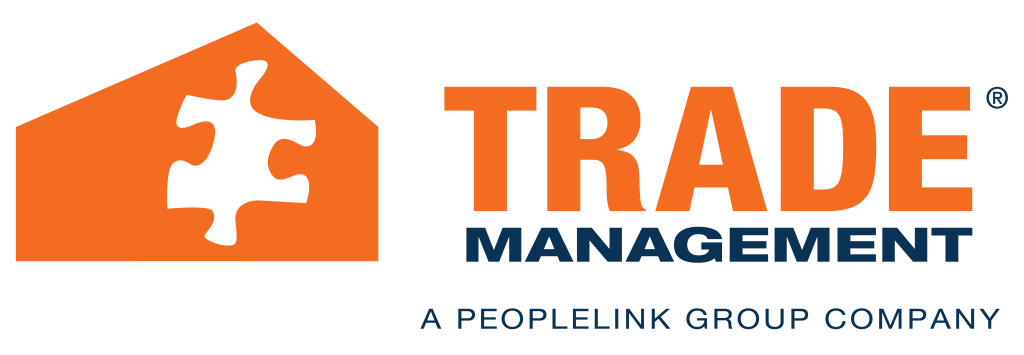May is Mental Health Awareness Month, so it is the perfect time to shine a spotlight on the unique challenges faced by skilled tradespeople. In the world of construction, where hammers pound, cranes soar, and the weather dictates conditions, mental health can sometimes take a backseat to the demands of the job. Elevated levels of stress and burnout due to the demanding nature of their jobs are common.
Acknowledging the importance of mental well-being in the construction industry is essential for ensuring the success and safety of every worker on the site. Despite the emphasis on physical labor and technical skills, mental health profoundly influences job performance, retention rates, and turnover among construction workers. Our aim is to raise awareness and support these essential workers during Mental Health Awareness Month and beyond.
Stigma and Mental Health in the Skilled Trades Industry
The skilled trades industry often perpetuates stereotypes of toughness and self-reliance, making it challenging for workers to be open about their mental health struggles. Stigma surrounding mental health can lead to underreporting of issues, potentially putting workers at risk of untreated conditions and decreased productivity.
Recognizing the need for support and creating a safe environment where workers can discuss their challenges without fear of judgment is crucial. Employers can consider implementing mental health programs, offering resources for counseling, or organizing workshops to raise awareness and reduce stigma. By fostering a culture that openly values mental health and pushes back against common notions of shame or weakness, companies can help to offset the stigma.
Safety and Mental Health
Mental health stands as a cornerstone for the safety and well-being of workers. The nature of these jobs often involves working with heavy machinery, intricate tools, and hazardous materials where precision and focus are paramount. When workers encounter high-stress situations and physically demanding tasks, maintaining good mental health is essential for making sound decisions and operating machinery safely. Issues like stress, anxiety, depression, or substance abuse can impair judgment and reaction times, increasing the risk of accidents or injuries in the workplace. When employers create an environment where workers feel comfortable seeking help when needed, it can have a positive effect on safety standards.
Addressing mental health concerns that include substance abuse disorders is a key component of mental health management. Recognizing the signs of addiction and providing support mechanisms within the workplace can be instrumental in helping workers seek treatment and maintain sobriety. Resources for addiction recovery not only help workers overcome their struggles but also contribute to a safer work environment by ensuring individuals are mentally and physically fit to perform their duties. Integrating mental health initiatives into workplace safety protocols and including resources for addiction recovery promotes the safety of the workforce and contributes to the overall health and resilience of all the team members.
Awareness Regarding Mental Health
It is important for tradespeople to recognize the signs of stress, anxiety, or burnout and seek assistance when needed. By addressing mental health issues openly and seeking help, when necessary, they can not only improve their own well-being but also contribute to creating a more positive and supportive work environment within the industry.
But for that to happen, programs need to be available and publicized through company communication channels. Limited awareness of available mental health resources can prevent workers from seeking help. Couple that with the stigma surrounding mental health issues in industries such as construction and manufacturing and the results are poor. This can be a significant barrier for workers seeking support and accessing services for their mental health.
Managers and employees need to be aware of services and programs available from the employer. Using the services when needed benefits the individual and positively impacts workplace productivity.
The Intersection of Physical and Mental Well-Being in Skilled Trades
Skilled trades require physical exertion that can lead to injuries, impacting a worker’s mental well-being due to pain and reduced mobility. Recognizing the challenges that physical labor can pose on mental well-being, implementing regular mental health check-ins and providing access to counseling services can make a significant difference. A work culture that values both physical and mental wellness will be the most successful.
Mental Health Resources Support Workforce Retention
Companies that prioritize mental health support and create a positive work environment are more likely to retain skilled workers in the long term. When workers experience mental health challenges without adequate support, they may feel compelled to leave their jobs in search of better opportunities or environments. This turnover not only affects productivity but also incurs significant costs associated with recruitment, training, and lost expertise.
Additionally, unresolved mental health challenges may lead to absenteeism, presenteeism (being physically present but not fully engaged), and an increased risk of workplace accidents or errors.
Implementing employee assistance programs (EAPs) can provide confidential counseling and resources to help workers cope with mental health challenges. Companies with successful mental health initiatives often see increased productivity and employee satisfaction levels.
How Employers Can Build Out a Mental Health Support Network
There are several areas a company can invest in to build their own comprehensive mental health program strategy:
- Provide mental health resources and training
- Offer mental health support and counseling services
- Raise awareness and reduce stigma around mental health
- Implement flexible work schedules and mental health days
- Collaborate with trade unions to address mental health concerns and provide resources
- Conduct research and studies on mental health in the skilled trades industry
- Actively promote self-care and mindfulness practices for tradespeople
Improving Mental Health Services Is Good for Employers and Employees
Addressing mental health concerns is essential for the well-being of individual workers and for the success and sustainability of businesses in the industry. Employers who invest in mental health support programs, promote open communication, and foster a culture of support and understanding are more likely to see improved retention rates, reduced turnover, and enhanced job performance among their skilled trade workforces.
Work with Trade Management and bring qualified, skilled tradespeople to your worksite projects. Get more information now.










